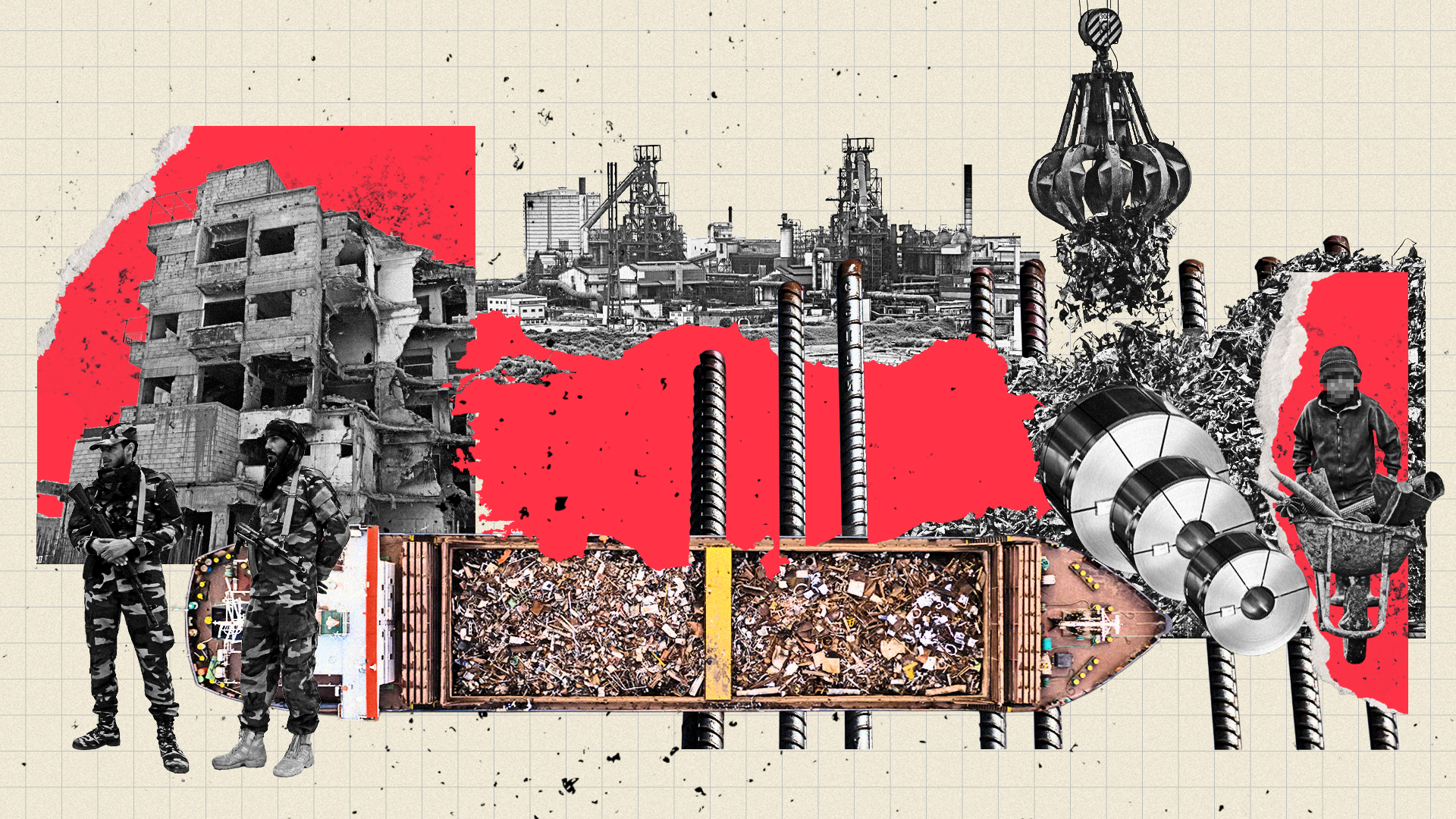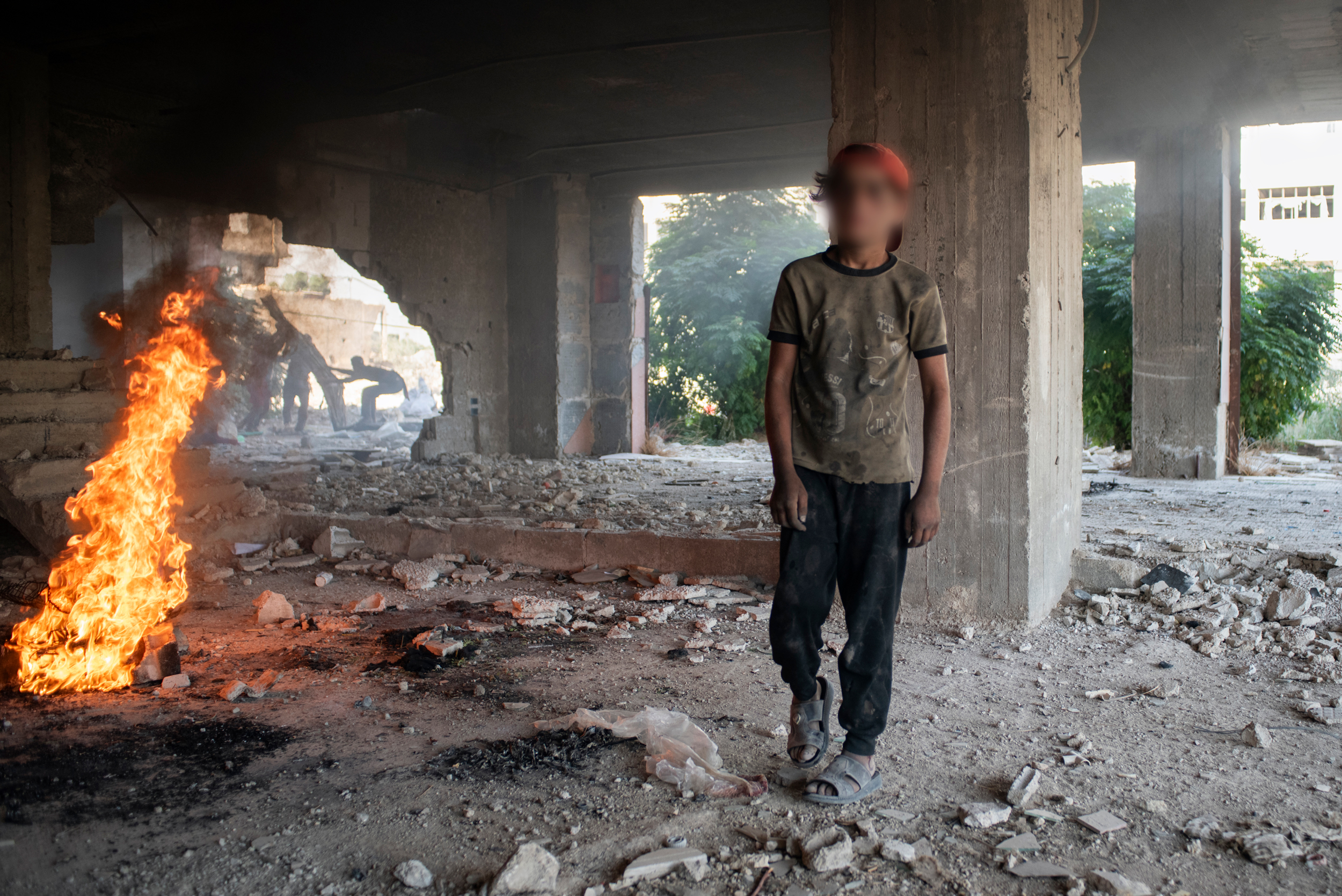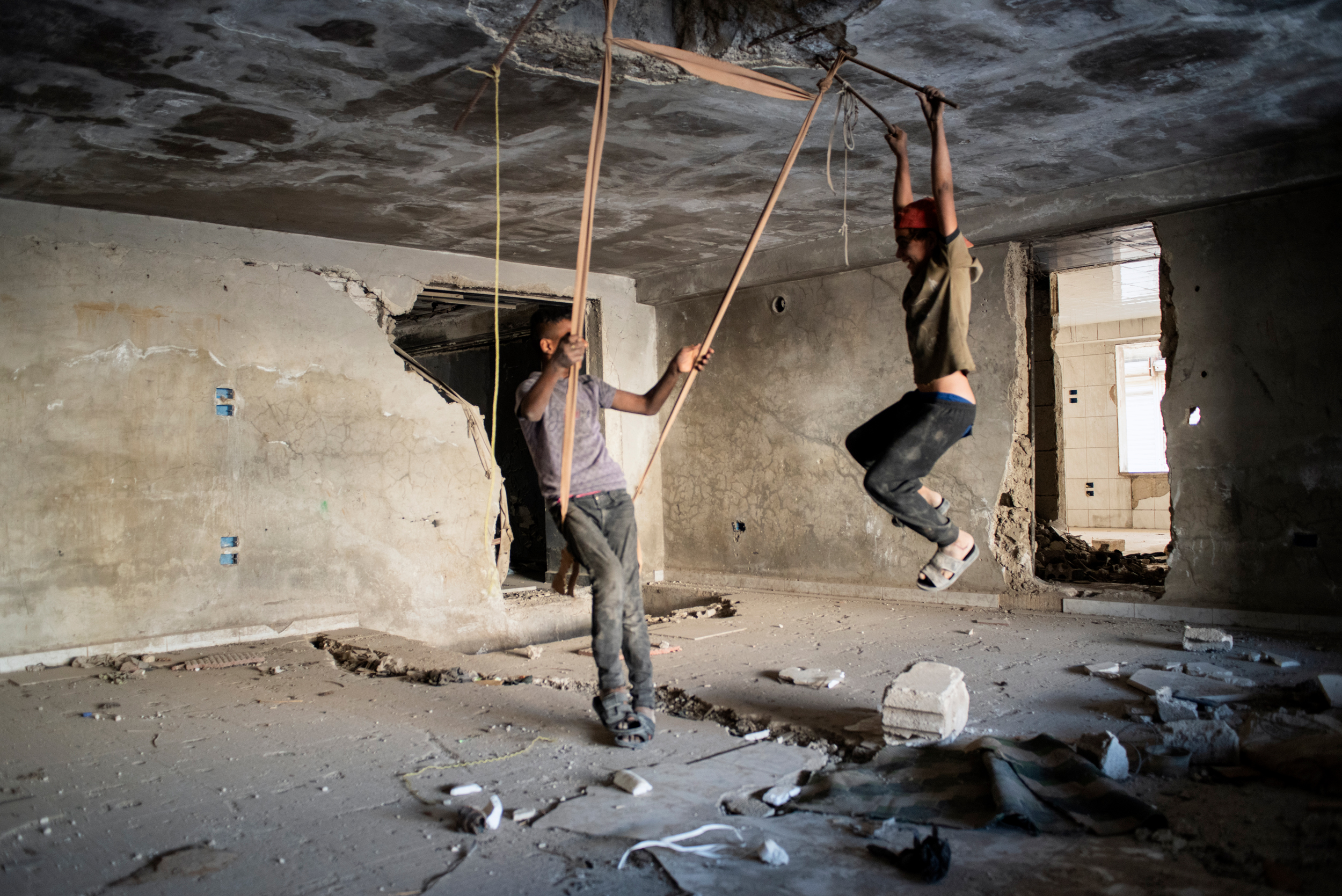Scrap wars: How child labour and conflict feed steel boom in Turkey
Despite the risks borne by children and families dismantling collapsed buildings, the global scrap metal trade is valued at $46 billion.
For Immediate Release
London, October 2025 – A year-long Investigation, co-published by The New Arab, SIRAJ and El País and developed with the support of Journalism Fund Europe, reveals that over the last decade, up to 10% of Turkey’s recycled scrap originated in countries gripped by war. Largely unmonitored and hard to trace, the regional supply chain feeding Turkey’s steel industry flows through indirect trade routes, with Syria-sourced scrap often funnelled via Lebanon before reaching private Turkish mills. The lack of oversight creates fertile ground for exploitation: international hunger for scrap attracts profiteers - sometimes even warlords - hoping to bankroll ongoing conflicts.
Children like Ahmad*, aged 11, are at the frontlines of a dangerous and hidden trade: scavenging metal scrap from the ruins of war, risking their lives among debris and dormant munitions on the outskirts of Damascus. Ahmad and his peers routinely pick through battle-scarred neighbourhoods, seeking steel rods and twisted metal to sell for a pittance - just four US cents per kilo. For Syria’s displaced families, child labour in scrap collection pays more than plastic, but comes with toxic risks and brutal conditions.
Our investigation has traced how Ahmad, and so many like him, are the first step in a tainted supply chain. What begins in the hands of vulnerable children and families in conflict economies soon enters vast, opaque steel industry in Turkey. Over the past decade, Turkish mills relied increasingly on metal scrap sourced from war-torn states like Syria, Libya, Lebanon, and Ukraine, as well as Russia and Israel/Palestine. These imports feed a booming recycled steel sector, with Turkey ranked among the world’s top producers and steel export values exceeding $16.1 billion USD.
Despite the risks borne by children and families dismantling collapsed buildings, the global scrap metal trade is valued at $46 billion. Finished Turkish steel, potentially made from conflict scrap, finds its way into European infrastructure - including stadiums, airports, hotels, and brand-new apartment blocks. As the European Union tightens regulations and considers scrap export bans, companies continue to source recycled steel from Turkish companies, neglecting the invisible trail of human suffering and child exploitation.
The findings of our investigation highlight the urgent need for governments, corporations, and regulators to enforce ethical sourcing, enhance monitoring of cross-border scrap imports, and address child labour and conflict sourcing in the steel supply chain running through Turkey and the EU.
*Pseudonym
ENDS
Notes to Editors:
-Read the full investigation here.
-High-resolution images are attached to this investigation for use in your coverage. All images and videos are © The New Arab. They may be republished for news reporting and editorial purposes, with credit to The New Arab.
For media inquiries, please contact: Outreach.uk@fadaatmedia.com
Press release distributed by Pressat on behalf of The New Arab, on Thursday 30 October, 2025. For more information subscribe and follow https://pressat.co.uk/
Children Scrap Metal Child Labour Human Rights EU Turkey Syria Lebanon Child Metal Steel Construction Charities & non-profits Government Opinion Article Public Sector & Legal
You just read:
Scrap wars: How child labour and conflict feed steel boom in Turkey
News from this source:





